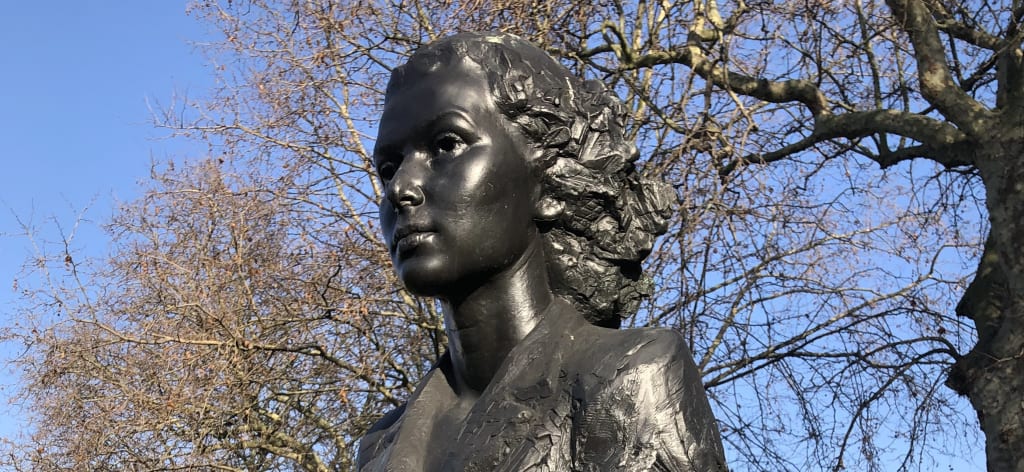Café de Flore Saint-Germain
Springtime in Paris, a French waiter, an English menu, a reunion. Where will it all lead?

“Garçon!”
It was more of a challenge than a request. After all, who attracts the attention of a waiter in a Paris café, these days, by shouting “garçon”?
It was old school, like me, and it was all part of the act, the drama, the fun.
The waiter, studiously ignoring me while serving his other customers, French customers, continued his round of the tables, scribbling on his scratch pad and tucking wads of Francs away into the wallet in his apron. Despite my passable accent, he knew I was English, and he resented an Englishman making an appearance in his bistro and attracting his attention with such a hail.
But I was in no hurry and was happy to wait. I passed a pleasant half an hour chatting to a glamorous lady sitting at the adjacent table. She was the epitome of Paris chic, a native of the city and happy to speak to a foreigner, even an Anglais. We discussed the weather, we talked of Sartre, we discussed the latest exhibition at the Louvre and, most importantly, we discussed how wonderful it was to be in Paris in the springtime.
Before the waiter deigned to appear at my table, the lady’s escort arrived, a charming young man, considerably younger than she was. He could have been her son, her nephew, her lover, or a business associate. I stood as he arrived, and we shook hands and exchanged pleasantries. He asked me if I would join them for an aperitif, but I declined, thanking him and wishing them a pleasant evening. I was not slow to pick up on the feeling that three was a crowd.
In any case the waiter appeared, with tourist menu under his arm. With a shake of the head, I asked him to bring the menu in French, although he pretended that he could not understand me, despite my almost perfect accent. The ‘almost’ was a giveaway. It was all part of the game.
When he returned with the genuine menu, I made my choice of entrée and asked for his advice about the main course. I also invited him to select a suitable wine for each course. I would not presume, in such a place, to choose my own wine. And my old friend Pascal was delighted to play the part of the sommelier. How could an Englishman possibly know which wine would best accompany each course? Not only was it a part of the game we played, it also meant that I never had to think about choice of wine, and I always had the perfect accompaniment for whichever choice of food I had made.
What utter bliss this was. Whenever I took the train to Paris Gard du Nord and then a cab into the Saint Germain district, I was in a mood for a leisurely meal, to sip a cocktail and absorb the atmosphere. But the trip was no mere excursion. It was a ritual, an annual pilgrimage. Once a year I visited Paris for a specific purpose and with a specific aim in mind. You could say that whenever I was in Paris, I was in the mood for love.
At the end of a delightful evening, in which I spoke to several people in the bistro, young and old, I managed to spend some time with Pascal. Having reached the end of the evening, he was happy to relax with me over a glass of Ricard, leaving the younger staff to clear the tables and finish off the work. It was always a real pleasure to spend some time with Pascal, talking of the old days.
We spoke English, as we always did. He liked to practice, when not in front of the clientele, and it somehow seemed to fit the mood, despite the fact that my French was considerably more proficient than his English.
He asked after my family, and I asked after his. We exchanged news and, in the brief time we had together, managed to catch up on all the important happenings of our distant and respective lives.
In the morning, having breakfasted on strong black coffee (I never got used to the idea of mixing hot milk into the bowl provided) and a crisp, velvety croissant, with a rich Normandy butter and a confiture de fraises, I set out for the day.
With my heart in my mouth, I made the rendezvous, as arranged. And there she was, radiant in her immaculate white dress, with silver belt and dress adorned in gold filigree, her long blond hair flowing in the breeze like wheat bowing to the summer winds. Each time I saw her again, she took my breath away.
She ran to me and immediately clasped my neck, her hands gripping each other around me, in a joyous embrace.
“Bonjour Grand-père,”
“Bonjour Nicole, ma chérie. Comment vas-tu?”
It was uncanny, how she was the very image of her grandmother. We embraced, warmly, and she led me by the hand through the park to the apartment she shared with her mother, my daughter Tania. So long ago, it seemed, since I had met Nicole’s grandmother. We were both agents of the Special Operations Executive. Parachuted in during the last phase of the war, organizing local operations of the resistance, the Maquis, in sabotage and disruption.
I adored her, my beautiful, courageous Marie. But she was much more concerned with her war against the Germans. Escaping Paris in the early days of the war, she operated from London, flying several missions, parachuting into the French countryside, rallying opposition and local resistance fighters. She had no time for me. Except the summer of 1943 when she was ordered to take leave to recuperate and we shared a blissful two weeks together in the Hampshire countryside.
“Let’s forget the war,” she said, as we lay in the field, lazily watching the clouds race by over the deep blue sky of an August afternoon. And forget it we did, locked in each other’s arms, as if it were the last embrace we would ever know. During her pregnancy, we spoke of nothing but our plans for the future, how we would live out our lives after the war. But it was never to be. Within a few weeks of the birth, it seemed, she was back in the fray. She wanted to leave our daughter, Tania, to be looked after by me. But I refused to allow her to go behind enemy lines again alone.
We argued the night through.
“Do you think me a child, an imbecile?” she asked. “That I need a man to accompany me?”
She would not have it, but eventually I persuaded her to allow me to come. Leaving Tania with her grandparents, I took a flight in the Lysander that followed her's to a position behind German lines. Until we became separated.
Marie hid out in the countryside for several weeks, harassing armored columns destined for the Normandy beaches. She was doing fine until some half-wit accomplice decided, single-handed, to attack a German front-line guard post, drawing fire and attracting an infantry column to flush out the terroristischen.
It was then that she was captured, having been shot and injured. My beautiful Marie. Marched off into the guard camp and executed the next morning, by firing squad. It was all over by the time I heard about it. Mercifully, they had no time for interrogation. The SS unit that captured her had been ordered to the Normandy countryside, to support the counter offensive.
My own mission was ignominious by comparison. I landed in a field and broke my ankle. Unable to travel, a local farmer and his wife hid me in their hay loft. By the time I was able to walk again, the Americans had arrived in Paris and my war was over.
Today was a time to remember. We dressed formally, me and Nicole and Tania, who had moved to Paris during the summer of love and married a respectable French lawyer, since divorced.
Our little party trooped out to the Mémorial de la France combattante. Nicole, with her grandmother’s Croix de Guerre pinned to her dress. We stood before the memorial, heads bowed, hands held. As always, I stood in front of my lover’s name, carved with pride into the stone of the monument, the last memorial to her bravery and her sacrifice. I wondered what life would have been like had she lived, had she given herself to me and our daughter, instead of to France and to her war.
We just stood there, we three, locked arm in arm, thinking of France’s hero and our beloved Marie. Friend, comrade at arms, lover, mother and grandmother.
“Adieu mon Amour. Reposer en paix.”
~ ~ ~ ~ ~
First published in Short and Sweet, Park Langley Editions, 2022.
Although the title image shows a memorial statue to Violette Szabo and other agents of the British Special Operations Executive of World War II, this story is not about Violette Szabo. It is, however, inspired by her life, as the various clues in the story suggest.
If you are interested in reading more about Violette Szabo, I would recommend this excellent article with some fabulous family photos.
About the Creator
Raymond G. Taylor
Author based in Kent, England. A writer of fictional short stories in a wide range of genres, he has been a non-fiction writer since the 1980s. Non-fiction subjects include art, history, technology, business, law, and the human condition.






Comments
There are no comments for this story
Be the first to respond and start the conversation.